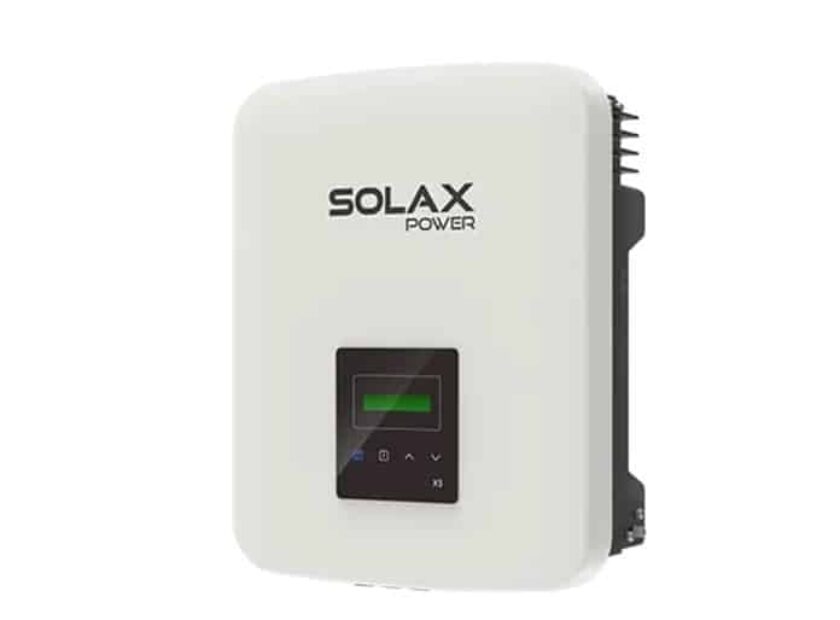If you’ve been exploring solar energy solutions for your home or business, chances are you’ve come across the terms “On-Grid” and “Off-Grid” inverters. But what’s the real difference between On-Grid and Off-Grid Inverters? Whether you’re a curious homeowner or a business owner considering solar options, figuring out which type suits you best can be confusing. Don’t worry! This blog will break it all down, so by the end, you’ll feel confident in understanding the difference between on-grid and off-grid inverters, and you may even be excited to switch to solar!
What is an Inverter Anyway?
Before we dive into the Difference between On-Grid and Off-Grid Inverters, let’s quickly recap what an inverter does. Simply put, an inverter is like a translator for your solar panels. It converts the direct current (DC) energy generated by the panels into alternating (AC) energy, which powers your home or business. Without an inverter, that beautiful sunlight soaking your solar panels wouldn’t be much use to your household appliances.

On-Grid Inverters: Syncing with the Grid
Now, let’s talk about On-Grid inverters. These are the most common type of inverters used in solar energy systems. As the name suggests, they work in sync with the electrical grid. So when your solar panels produce more energy than you need, the excess electricity goes back into the grid. This is known as “net metering,” which can often result in credits on your electricity bill. Sweet, right?
Here’s why On-Grid inverters could be a good fit for you:
- You’ll never run out of electricity. Even if your solar panels aren’t producing enough power (cloudy days, anyone?), you can always draw electricity from the grid.
- Lower initial costs. On-Grid systems are usually less expensive to install compared to Off-Grid systems because you don’t need to buy batteries to store energy.
But there’s a flip side:
- No power during blackouts. Since On-Grid inverters rely on the grid, they automatically shut down when there’s a power outage. No one wants to be left in the dark during a blackout!
You May Also like: Unlock the Hidden Power of Your Solar Panels with These 10 Efficiency Hacks!
Off-Grid Inverters: Freedom from the Grid
Ready to be a solar energy rebel? Off-Grid inverters are perfect for those who want to live completely independent of the electrical grid. Instead of sending excess energy to the grid, an Off-Grid inverter stores it in batteries. That way, you have a reserve of power for when the sun isn’t shining.
Here’s why Off-Grid inverters might be your solar soulmate:
- Complete energy independence. You’re not reliant on the grid, so power outages won’t affect you.
- Off-grid systems are perfect for remote locations. If you live in a rural area or a place where connecting to the grid is too expensive or impossible, they are a lifesaver.
However, keep these things in mind:
- Higher upfront cost. You’ll need to invest in batteries, which can be a significant additional expense.
- Energy management is key. Since you’re not connected to the grid, you must carefully manage your energy consumption to avoid running out of power.
Key Differences Between On-Grid and Off-Grid Inverters
- Connection to the grid: On-Grid inverters work with the electrical grid, while Off-Grid inverters operate independently.
- Energy storage: On-Grid systems typically don’t include batteries, whereas Off-Grid systems require them.
- Cost: On-Grid systems tend to be less expensive upfront, while Off-Grid systems require more batteries and additional equipment investment.
- Blackout capability: On-Grid inverters shut down during a blackout, whereas Off-Grid systems will keep your lights on.
So, Which Inverter is Best for You?
The difference between on-grid and off-grid inverters depends on your specific needs. Are you looking to lower your electricity bills while staying connected to the grid? Then an On-Grid inverter might be your best bet. But an Off-Grid inverter could be your perfect match if you dream of total energy independence and don’t mind the extra costs.
You May Also Like: Why Every Business is Switching to Commercial Solar
A Few Pro Tips Before You Go Solar
- Consider your location. If you live in a place with frequent power outages, Off-Grid systems are worth considering.
- Think about your energy goals. Are you trying to reduce your electricity bill, or do you want to go entirely off the grid? Your goals will influence which system is right for you.
- Evaluate costs. On-Grid systems are generally cheaper upfront, but if you’re looking for long-term independence, Off-Grid systems offer value over time.
- Explore hybrid options. Not sure which way to go? There are also hybrid systems that provide the best of both worlds by combining On-Grid and Off-Grid functionality.
Trends in Solar Energy
If you’re still undecided, here’s a fun trend that might excite you. Hybrid inverters are gaining popularity as they allow you to use both On-Grid and Off-Grid features. This allows you to store energy in batteries while still being connected to the grid for backup. It’s the best of both worlds and could be the future of solar energy systems.
Final Thoughts
Understanding the Difference between On-Grid and Off-Grid Inverters is crucial for making the right choice for your solar energy needs. Whether you want an On-Grid system’s simplicity or an Off-Grid setup’s self-reliance, solar energy is a step toward a cleaner, greener future.
Now that you’re armed with all this knowledge, you can confidently decide which inverter suits you. And hey, whatever you choose, you’ll be doing the planet—and your wallet—a big favor!






Comments (02)